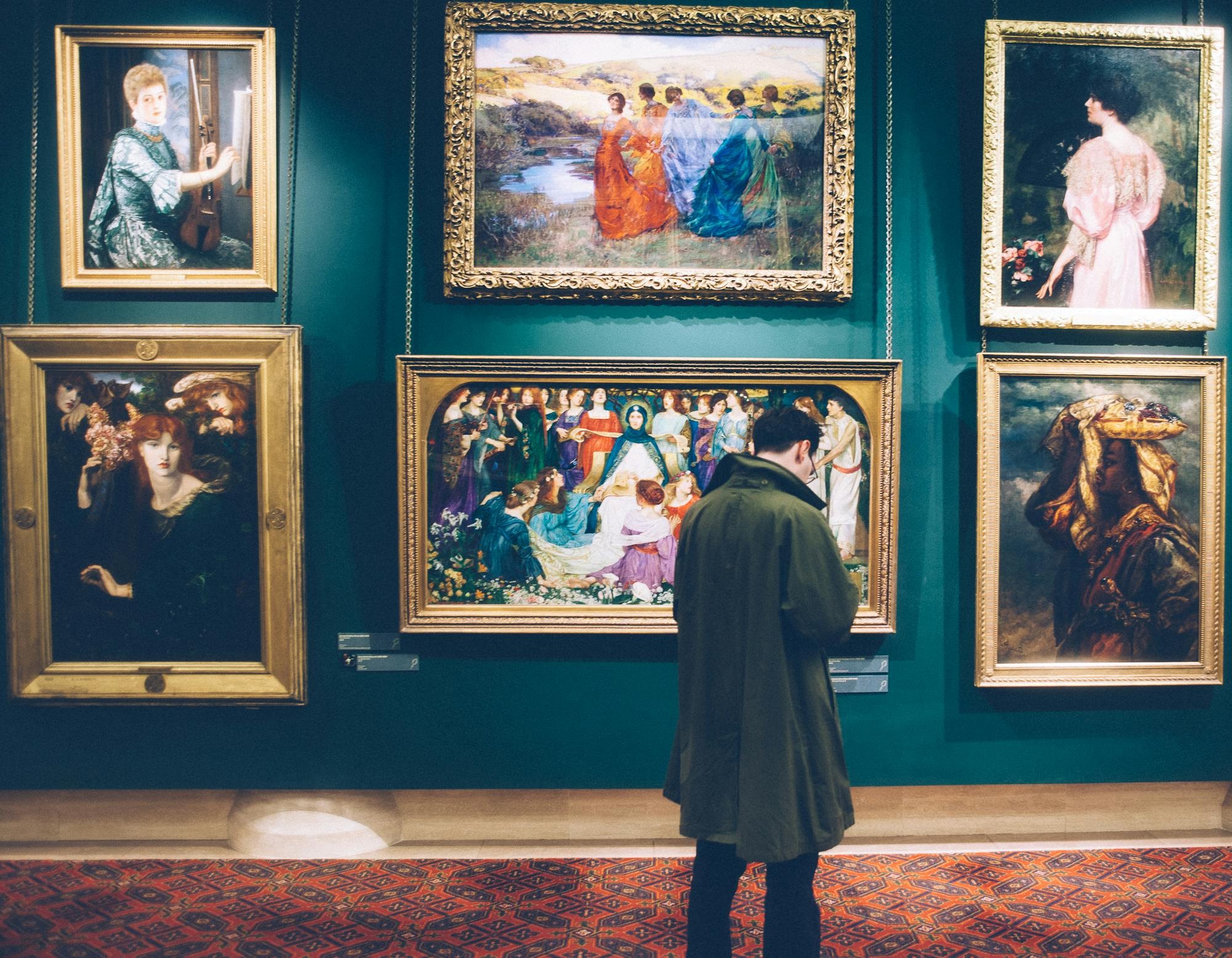
As an artist, managing your finances might not be the most exciting part of your creative journey, but it’s crucial for your success and sustainability in the art world. Proper bookkeeping helps you keep track of your income and expenses, ensures compliance with tax regulations, and provides a clear picture of your financial health.
In this artists’ guide to bookkeeping, we’ll explore essential bookkeeping tips tailored to artists, helping you manage your finances like a pro.
Why Bookkeeping is Important for Artists
Financial Clarity
Bookkeeping provides a clear and detailed record of your financial transactions. This clarity helps you understand where your money is coming from and where it’s going, enabling you to make informed financial decisions.
Tax Compliance
Accurate bookkeeping ensures you comply with tax laws and regulations. By keeping detailed records, you can easily prepare and file your tax return, claim eligible deductions, and avoid penalties.
Financial Planning
With accurate financial records, you can plan for the future, set financial goals, and create a budget. This planning helps you allocate resources effectively and prepare for periods of low income or unexpected expenses.
Professionalism
Maintaining organized financial records reflects professionalism. It demonstrates to clients, galleries, and collaborators that you take your art career seriously and manage your business responsibly.
Essential Bookkeeping Tips for Artists
1. Separate Personal and Business Finances
One of the first steps in managing your finances is to separate your personal and business finances. Open a dedicated bank account for your art business and use it for all business-related transactions. This separation simplifies your bookkeeping and ensures clarity in your financial records.
2. Track Income and Expenses
Keep a detailed record of all your income and expenses. This includes various income sources such as sales of artwork, commissions, grants, teaching fees, and any other sources of income. Similarly, track all business-related expenses such as art supplies, studio rent, marketing costs, travel expenses, and insurance.
3. Use Accounting Software
Invest in accounting software tailored to small businesses and freelancers. Platforms like QuickBooks, Xero, or Wave can automate many bookkeeping tasks, including invoicing, expense tracking, and financial reporting. These tools save time and reduce the risk of errors.
4. Maintain Accurate Records
Keep accurate and up-to-date financial data of all financial transactions. Store receipts, invoices, and bank statements in an organized manner. Digital copies can be a convenient way to keep your records safe and easily accessible.
5. Create a Budget
Develop a budget to manage your income and expenses. A budget helps you allocate funds for essential expenses, plan for upcoming projects, and save for future needs. Regularly review and adjust your budget to stay on track.
6. Monitor Cash Flow
Cash flow is the lifeblood of your art business. Monitor your cash flow regularly to ensure you have enough funds to cover your expenses. Identify periods of high and low income and plan accordingly to maintain financial stability.
7. Invoice Promptly
Send invoices promptly for any sales or services provided. Clearly outline payment terms and due dates on your invoices. Follow up on overdue payments to ensure timely receipt of funds.
8. Deduct Business Expenses
As an artist, you can claim tax deductions for business-related expenses. These may include supplies, studio rent, utilities, travel expenses, marketing costs, and professional development. Keep detailed records of these expenses to maximize your deductions.
9. Set Aside Money for Taxes
To avoid last-minute stress, set aside a portion of your income for taxes. Estimate your tax liability based on your income and set aside funds accordingly. This practice ensures you have enough money to pay your taxes when they are due.
10. Consult a Professional
If bookkeeping feels overwhelming, consider consulting a professional accountant or bookkeeper. They can provide expert advice, ensure your records are accurate, help you with tax planning and compliance, and manage various legal issues to ensure you meet all necessary regulations.
Advanced Bookkeeping Strategies for Artists
Job Costing
Job costing involves tracking the costs associated with specific projects or artworks. This method helps you understand the profitability of each project and make informed pricing decisions. Track costs such as materials, labour, and overheads for each project to assess its financial performance.
Budgeting and Forecasting
Develop a budget and financial forecast for your art business. A budget helps you allocate resources effectively, while a forecast projects future income and expenses. Regularly review and adjust your budget and forecast to stay aligned with your financial goals.
Financial Reporting
Generate regular financial reports to monitor your business’s performance. Key reports include profit and loss statements, balance sheets, and cash flow statements. These reports provide valuable insights into your financial health and help you make informed decisions.
Utilizing Key Performance Indicators (KPIs)
KPIs are metrics that measure the performance of your art business. Common KPIs for artists include sales growth, profit margin, and return on investment. Monitoring these indicators helps you evaluate your business’s success and identify areas for improvement.
Tax Planning
Effective tax planning can help maximize tax benefits, save you money, and ensure compliance with tax regulations. Keep detailed records of your income and expenses, claim eligible deductions, and consider making quarterly tax payments to avoid a large tax bill at the end of the year.
Common Bookkeeping Challenges for Artists

Irregular Income
Artists often face irregular income due to the nature of their work. This fluctuation can make budgeting and financial planning challenging. Maintaining a cash reserve and monitoring cash flow can help you manage periods of low income.
Managing Multiple Income Streams
Many artists have multiple income streams, such as artwork sales, commissions, teaching, and grants. Managing personal finance is crucial when dealing with these diverse income sources, requiring diligent record-keeping and organization.
Expense Tracking
Artists incur a wide range of expenses, from materials to marketing costs. Implementing a robust expense tracking system ensures you capture all business-related expenses and maximize your tax deductions.
Staying Compliant with Tax Regulations
Navigating tax regulations can be complex, especially for those in the visual arts. Keeping accurate records, claiming eligible deductions, and consulting a tax professional can help you stay compliant and avoid penalties.
Conclusion On Artists’ Guide to Bookkeeping
Effective bookkeeping is essential for managing your art business’s finances and achieving long-term success. By implementing these bookkeeping tips and strategies, you can maintain accurate financial records, ensure tax compliance, and make informed financial decisions. Whether you manage your bookkeeping independently or seek professional assistance, staying organized and proactive with your finances will help you thrive as a professional artist.
Are you an artist looking to manage your finances like a pro? Grey Space Advisory offers tailored bookkeeping services designed for creative professionals. Contact us today to learn how we can help you maintain accurate financial records, ensure tax compliance, and achieve your financial goals.
FAQs
1. Why is bookkeeping important for artists?
Bookkeeping provides financial clarity, ensures tax compliance, helps with financial planning, and reflects professionalism. It is essential for managing your finances effectively and achieving long-term success.
2. What expenses can artists deduct for tax purposes?
Artists can deduct business-related expenses such as art supplies, studio rent, utilities, marketing costs, travel expenses, and professional development. Keeping detailed records of these expenses is crucial for maximizing deductions.
3. How can I manage irregular income as an artist?
To manage irregular income, create a budget, maintain a cash reserve, and monitor your cash flow regularly. Planning for periods of low income and saving during high-income periods can help maintain financial stability.
4. What accounting software is best for artists?
Popular accounting software options for artists include QuickBooks, Xero, and Wave. These platforms offer features tailored to small businesses and freelancers, such as invoicing, expense tracking, and financial reporting.
5. Should I hire a professional bookkeeper?
If bookkeeping feels overwhelming or time-consuming, hiring a professional bookkeeper can be beneficial. They provide expert advice, ensure your records are accurate, and help with tax planning and compliance, allowing you to focus on your creative work.